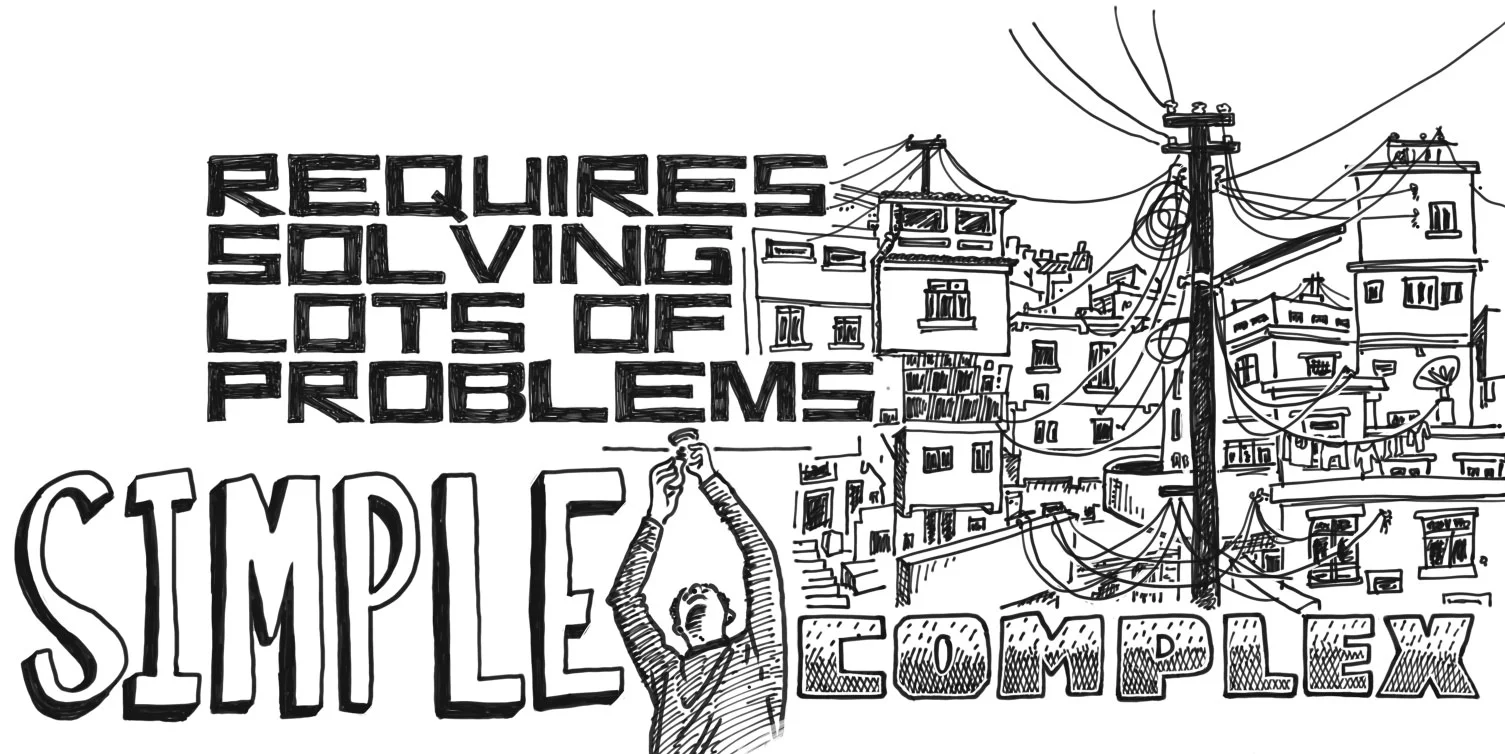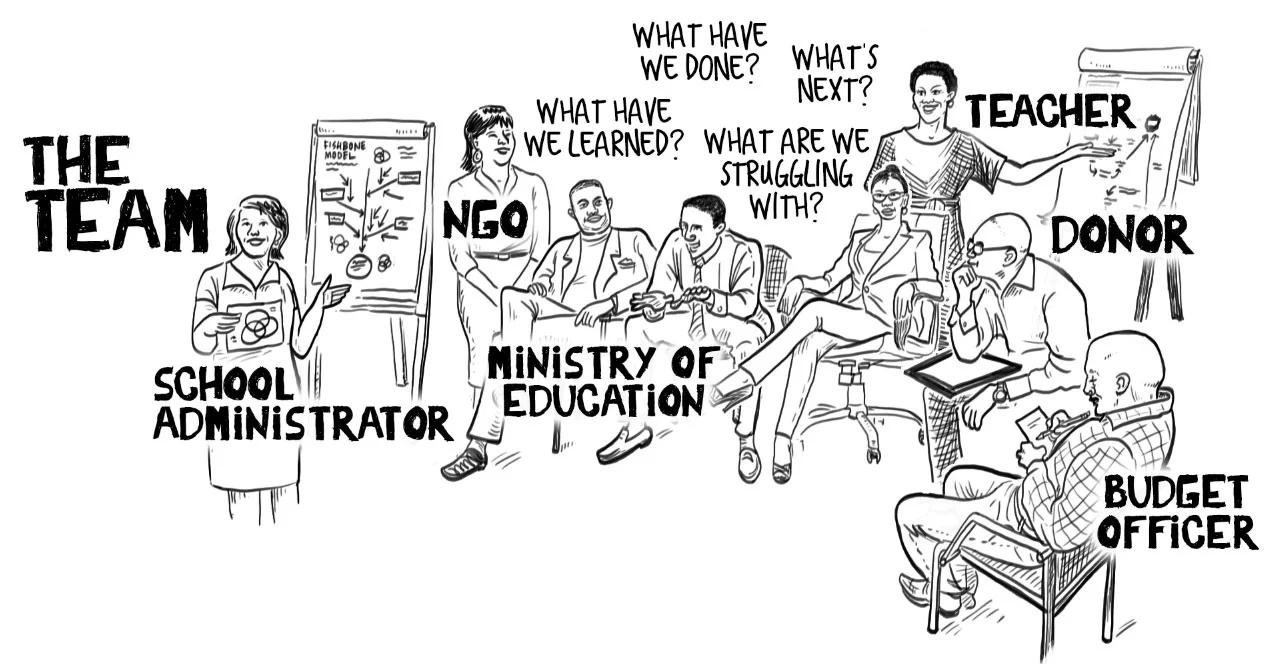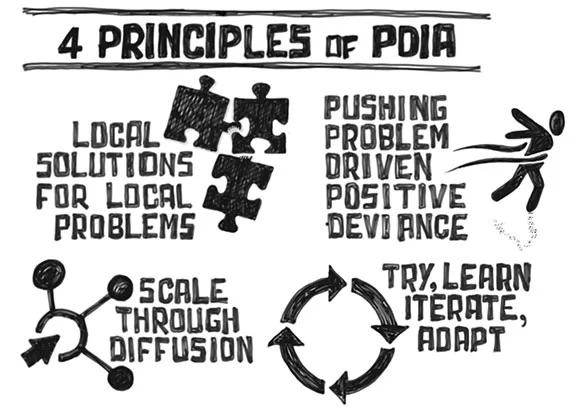International Development Requires an Adaptive and Iterative Process for Complex Problem-Solving
/The Building State Capability (BSC) program at Harvard’s Center for International Development uses the Problem Driven Iterative Adaptation (PDIA) approach to build the capability of organizations to implement policies and programs.
ABOVE: To illustrate the complexity of planning projects in challenging environments, the Building State Capability (BSC) program uses the example of planning a trip across North America in the year 1803. Learn More.
In the realms of government, business, and academia acronyms sprout like tangled weeds.
The facilitators and educators at BSC have been told many times that the acronym “PDIA” is clunky and that it doesn’t easily roll off the tongue.
Matt Andrews, a Senior Lecturer in International Development who often leads the PDIA training programs, responds:
“It doesn’t matter what you call it — what matters is that you do it!”
However, in order to do it, people first need to understand what it is.
To that end, the director of the Building State Capability Program Salimah Samji and research fellow Tim McNaught collaborated with Alphachimp to create this whiteboard animation (above) with three goals in mind:
- Illustrate the complexity of planning projects in developing nations
- Articulate the mission of the BSC program
- Introduce viewers to the PDIA process
Video Transcript
International Development requires solving lots of problems. Some simple. Some complex. But how do we identify complex problems and what process can we use to solve them?
Imagine we wanted to travel from St. Louis to Los Angeles. How would we plan our trip? With today’s tools, such a trip is a fairly simple problem. Using well-known routes and solutions, we’ll arrive in LA in a couple days… or in just a few hours.
Now then, imagine the year is 1804. With no roads and incomplete maps, how would we travel from the middle of North America, across the Great Plains and Rocky Mountains to the Pacific Coast?
Suddenly, we have a very complex problem, filled with unknowns and requiring a completely different strategy. Who and what would we need to take with us?
We’d need a multi-disciplinary team, including a cartographer to chart our route and a spokesperson to communicate with others. We would take shorter trips, then camp to rest. We’d learn along the way and use our newfound knowledge to plan the next stage of our journey.
The Building State Capability Program believes that most development problems are complex, and solving them requires a step-by-step approach.
We call this process Problem-Driven Iterative Adaptation or PDIA.
PDIA is not about delivering pre-packaged solutions. Instead of focusing on a solution, we start by identifying a problem that matters.
A local team then gathers to break the problem down into its root causes, identify entry points, and quickly take action.
As we go, the team regularly pauses to reflect and adapt. As good ideas sprout naturally, they start to grow and spread.
Complex problem-solving is a journey of discovery that allows the emergence of skills and solutions. It’s about building capability by delivering results.
The Four Principles of Problem-Driven Iterative Adaptation or PDIA:
- Focus on specific problems in particular local contexts, as nominated and prioritized by local actors;
- Foster active, ongoing experimental iterations with new ideas, gathering
- lessons from these iterations to turn ideas into solutions;
- Establish an “authorizing environment” for decision-making that encourages experimentation and “positive deviance”; and
- Engage broad sets of agents to ensure that reforms are viable, legitimate, and relevant—that is, politically support-able and practically implementable.
To learn more, visit their website at https://bsc.cid.harvard.edu/














